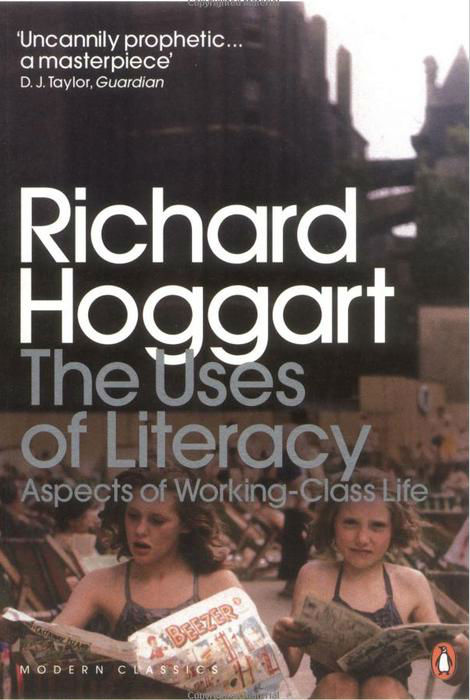 One of the UK’s most articulate and forceful thinkers, and actors, in the cause of popular education and cultural uplift has just died. Richard Hoggart, born in Leeds in 1918 the son of a housepainter who died in his first year, came from the most authentic English working class background imaginable, and immortalized it in his classic The Uses of Literacy (1956), the most passionate love letter to the English common people since George Orwell’s The Road to Wigan Pier. An immediate bestseller, it’s recognized as, in the words of its Penguin introduction, “one of the few truly essential books about British society to have been published in the past fifty years,” but it was also one of the best critiques in its time of the new pressures of mass media – “The Newer Mass Art” – that in the 1950s was busily deracinating the British working class and estranging them from their own traditions.
One of the UK’s most articulate and forceful thinkers, and actors, in the cause of popular education and cultural uplift has just died. Richard Hoggart, born in Leeds in 1918 the son of a housepainter who died in his first year, came from the most authentic English working class background imaginable, and immortalized it in his classic The Uses of Literacy (1956), the most passionate love letter to the English common people since George Orwell’s The Road to Wigan Pier. An immediate bestseller, it’s recognized as, in the words of its Penguin introduction, “one of the few truly essential books about British society to have been published in the past fifty years,” but it was also one of the best critiques in its time of the new pressures of mass media – “The Newer Mass Art” – that in the 1950s was busily deracinating the British working class and estranging them from their own traditions.
“It is often said that there are no working-classes in England now, that a ‘bloodless revolution’ has taken place,” Hoggart remarked, and his own work makes you wonder why anyone would ever have thought that could be a good thing. Given the level of social segregation and marginalization in modern England, it also seems completely false. As an essayist and a public servant, he worked most of his life to alleviate any disadvantages for the working class in England while hardly ever attempting to bully or manage it. Assistant Director-General of UNESCO from 1971 to 1975, he also was Chairman of the Advisory Council for Adult and Continuing Education and vice chairman of the UK Arts Council. There are too few like him in any age, and his brutally divided country has need of him now.

































